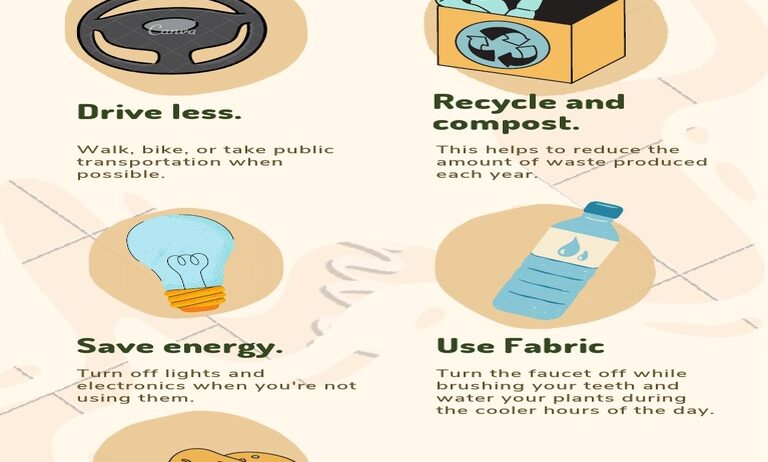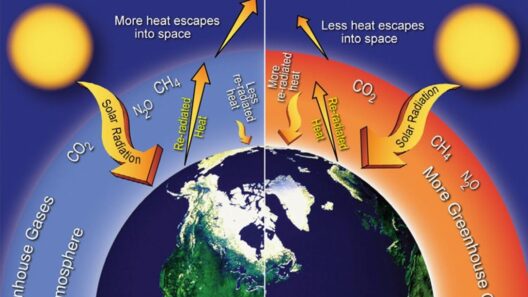Climate change has emerged as one of the most profound challenges facing humanity, fundamentally altering our ecosystems, weather patterns, and social structures. The urgency to mitigate its impacts cannot be overstated. While governmental and industrial strategies are crucial, individual actions play an equally significant role. This discourse aims to elucidate the multifaceted approaches we can adopt to make tangible strides toward staving off climate catastrophe.
Understanding the importance of proactive measures is essential. Here, we delve into actionable strategies anyone can implement to contribute towards curtailing the detrimental effects of climate change.
Empowering Yourself Through Knowledge
Before embarking on personal modifications, it is vital to become well-versed in the ramifications of climate change. Familiarize yourself with the science behind it—how greenhouse gases, deforestation, and fossil fuel consumption accelerate global warming. Knowledgeable individuals are not just participants in conversation; they become advocates for change. Reading research articles, attending relevant workshops, and engaging in discussions about climate science can empower individuals to make informed choices.
Moreover, awareness of local environmental policies and climate initiatives can shape your activism. Understanding the unique climate challenges your community faces allows for tailored approaches that raise awareness and inspire local action.
Reducing Your Carbon Footprint
One of the most immediate ways to combat climate change is to adjust lifestyle choices to minimize carbon emissions. Start by reassessing your transportation habits. Localizing your commute can significantly decrease emissions. Whenever possible, opt for public transit, biking, or walking instead of driving. If driving is necessary, consider carpooling or switching to an electric or hybrid vehicle. Each small decision contributes to a larger outcome.
In terms of energy consumption, adopting energy-efficient appliances can markedly reduce your carbon footprint. Look for Energy Star ratings when purchasing new devices. Switching to LED lighting, utilizing programmable thermostats, and employing smart power strips can also help in consuming less energy.
Embracing renewable energy sources is another effective step. If feasible, invest in solar panels for your home. Participate in community solar projects, or choose energy suppliers that offer renewable energy options. Each kilowatt made from sustainable sources represents a fraction of the fight against fossil fuel reliance.
Conscious Consumption and Sustainable Choices
Consumer habits wield surprising power over environmental outcomes. The products we purchase—from groceries to clothing—can be a reflection of our ecological ethics. Focus on purchasing sustainably sourced products. Choose organic and locally-produced foods whenever possible, as these typically have a lower environmental impact. Participation in community-supported agriculture (CSA) and farmers’ markets not only supports local economies but also diminishes the carbon emissions associated with transporting food over long distances.
Adopting a plant-based diet can lead to further reductions in your carbon footprint. The livestock industry is one of the leading contributors to greenhouse gas emissions, affecting land use and water resources. Incorporating less meat and exploring vegetarian or vegan meal options can align your dietary habits with your environmental values.
Moreover, seek to reduce waste in your daily life. Transitioning to a zero-waste lifestyle may feel daunting, but small initiatives—like using reusable bags, containers, and straws—can have a remarkable impact. Composting organic waste reduces landfill levels and enriches the soil. By minimizing single-use plastics, you’re not only decreasing pollution but also inspiring others to follow suit.
Advocacy and Support for Policy Change
Individual efforts, while potent, must be coupled with broader systemic change. Engage in advocacy to promote climate-friendly policies. This is where your voice can intersect with legislation, potentially influencing significant decisions at local, state, and national levels. Support initiatives aimed at reducing reliance on fossil fuels, enhancing public transportation, and protecting green spaces.
Participating in or supporting environmental organizations amplifies your impact. These groups often have resources and networks to consolidate change on a larger scale. These organizations also require financial backing; consider donating or volunteering your time to aid their efforts. Grassroots movements can be incredibly effective in pushing for substantive climate action.
Ultimately, staying informed about electoral candidates’ environmental policies is imperative. Voting for representatives who prioritize climate issues ensures that your political landscape aligns with your environmental convictions.
Encouraging Community Involvement
Communities can achieve remarkable feats when individuals come together for a common goal. Foster community engagement by participating in or organizing local clean-up days, tree-planting events, or educational workshops. Collaborating with local schools to incorporate environmental education empowers future generations to prioritize sustainable practices.
The shift towards sustainable living is a collective journey; share your experiences and tips through social media or local forums. Building a network of environmentally-minded individuals can invigorate your own commitment while influencing others.
Conclusion: The Power of Collective Action
In summation, preventing climate change requires a tapestry of individual actions woven together with community and systemic efforts. Every stride taken—be it educational, lifestyle-oriented, or advocacy based—brings us closer to achieving environmental sustainability. By combining personal responsibility with collective action, we stand a fighting chance against the tide of climate change. Individual impact resonates through community spirit; thus, together, we can foster a sustainable future for generations to come.







